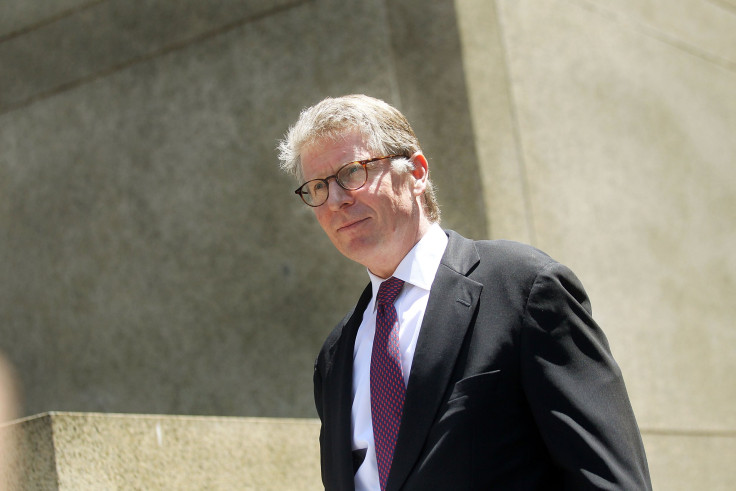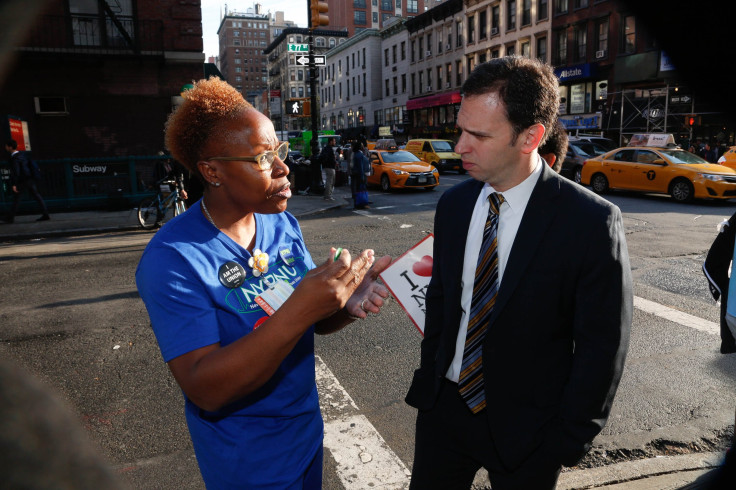NY DA Vance Controversies Prompt Bill Limiting Defense Attorney Contributions To Prosecutors

A New York state lawmaker has announced plans to introduce legislation that would prevent defense attorneys from giving large political contributions to prosecutors. The proposed bill comes after reports from International Business Times and others that Manhattan District Attorney Cyrus Vance took political contributions from defense attorneys representing clients his office was investigating, including Harvey Weinstein and the children of President Donald Trump.
State assemblymember Dan Quart, a Manhattan Democrat, is planning to introduce a bill requiring the state to build a list of criminal defense attorneys and firms, the New York Daily News’ Kenneth Lovett reported Monday. Those on the list would be able to give only $320 to district attorney candidates per election cycle, a restriction which mirrors New York City’s limits on political donations from companies and individuals doing business with the city. (District attorney campaigns are governed by state, not city, campaign finance law.) Under present state law, there are no rules preventing defense attorneys, or their clients, from giving directly to the district attorneys prosecuting their cases.
New York state currently uses a formula based on district population to set campaign donation limits for district attorney races. The limit is calculated as five cents multiplied by the number of registered voters in the district, while capping donations at $50,000 for larger districts like Manhattan.
While Vance, like many district attorneys, has instituted internal policies that ban certain kinds of donations in order to prevent actual or perceived conflicts of interests, those policies don’t have the force of law behind them, and, as the recent controversies involving Vance suggest, are not strict enough to prevent accusations of pay-to-play against the Manhattan DA’s office.
“[The bill] will avoid not only conflicts, but even the appearance of conflicts so people aren't questioning whether Cy Vance chose not to prosecute Harvey Weinstein because of the facts, as he stated, or campaign donations, as others have stated,” Quart told the Daily News.

Earlier this month, a joint investigation by ProPublica, the New Yorker and WNYC found that Vance overruled his prosecutors and dropped a 2012 fraud investigation into President Trump’s eldest children, Ivanka Trump and Donald Trump Jr. Vance made the decision after taking a meeting about the case with Marc Kasowitz, the president’s longtime lawyer. Just months after the meeting, Kasowitz donated $32,000 to Vance’s reelection campaign.
Following reports on the meeting and donation, Vance returned the contribution. Quart, however, called on Attorney General Eric Schneiderman to investigate. (Quart communications director Katie O’Hanlon told IBT Sunday that Schneiderman’s office has not yet responded to the request.) Vance told the Daily News Sunday that he was no longer accepting contributions until the nonpartisan Center for the Advancement of Public Integrity completes a review of his fundraising.
But just as Vance was returning the Kasowitz donation, his office came under further scrutiny for dropping an investigation into an alleged 2015 sexual assault by Weinstein. Vance has said his office didn’t have enough evidence to prosecute Weinstein, despite a police sting operation that caught the now-disgraced Hollywood mogul admitting to groping his accuser on tape. As first reported by IBT, David Boies, a longtime Weinstein lawyer who was not representing Weinstein during the criminal investigation, donated $10,000 to Vance’s campaign after the charges were dropped. Boies, together with his son and legal partners, have given more than $180,000 to Vance’s campaigns. Despite telling The American Lawyer he would continue to represent Weinstein last week, sources told CNN over the weekend that Boies was no longer working with Weinstein or the Weinstein Company.
NYPD sources told the New Yorker the department gave Vance more than enough evidence to prosecute the case. On Friday, the head of the New York City detectives union put the failure to prosecute Weinstein, who has now been accused of sexual abuse and harassment by more than a dozen women, squarely on Vance’s relationship with his donors.
“The glaring reason [for not filing charges] is the conflict between the DA and the lawyers representing Mr. Weinstein which led to the female victim's rights and protection under the law to be sidelined,” Detectives Endowment Association President Michael Palladino said in a statement Friday. Last week, the NYPD announced it was reviewing investigations into possible sexual abuse by Weinstein.
Vance has said he will consider new rules and vetting processes for his office, but emphasized contributions have never influenced his prosecutorial decision, and that he had done nothing illegal in taking the donations.
"It is legal and it has been common practice for district attorneys to raise money from lawyers even though those lawyers may have matters before the office,” Vance said last week.
It's time that candidates for local District Attorney just say no to campaign donations from criminal defense lawyers.
— Preet Bharara (@PreetBharara) October 13, 2017
In total, Vance has raised more than $6.2 million for his three campaigns, according to New York State campaign finance records. That includes a $10,000 donation from Elkan Abramowitz, a partner at the firm defending the Trump organization, which occurred during the course of the investigation into Trump siblings. It also includes $42,000 from Clayman & Rosenberg LLP, a New York criminal defense firm that has received favorable deals from Vance’s office, including a plea that kept a gynecologist who admitted to sexually assaulting patients out of prison and off probation.
Vance will appear unopposed on the ballot in next month’s election, but former Brooklyn District Attorney candidate Marc Fliedner has mounted a write-in campaign in response to the recent controversies. On Friday, attorney Peter Gleason also announced a write-in campaign.
If the legislature passes Quart’s bill, which doesn’t yet have a co-sponsor in the Senate, it might be welcome news for Vance. Defenders of the district attorney, argue Vance is independently wealthy, not in need of campaign cash, and simply the most visible district attorney in a state with campaign finance rules that inevitably lead to these kind of donations from defense attorneys.
"Campaign contributions are a ‘problem’ for every elected official — whether they're running for high profile office in NY or local office anywhere throughout the country,” Jerry Goldfeder, an expert in state campaign finance law who represents Vance and several other district attorneys in the state, told IBT in an email. “New York City has dramatically diminished the issue by having a robust public campaign finance system, and it would make everyone's lives easier — and our political system better — if we enacted public finance campaigns laws across-the-board."
New York has publicly elected district attorneys, whom the governor can remove from office at anytime. While nearly all of the country’s more than 2,300 district attorneys are elected, nearby Connecticut and New Jersey, as well as Alaska, appoint district attorneys, freeing them from the burden of raising campaign funds.
© Copyright IBTimes 2024. All rights reserved.












